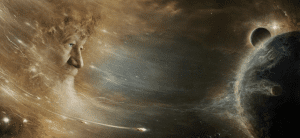
Nothing ends that does not begin, and nothing begins without an ordained end. Applied to the Bible, the Book of Genesis must be understood in the light of the Book of Revelation.
It is easy to pursue the study of the Bible and theology as a good in itself, but it must be noted that these things cannot, or at least ought not, be divorced from the human condition. In turn, a biblical perspective (or a rejection of it) affects anthropology.
For example, from a deterministic perspective, humanity is often seen as a mere accident resulting from the fortuitous bounce of primordial biology and evolution. It follows from this that human beings have no innate value. Of course, Catholicism firmly rejects such a view, instead seeing creation as the result of God’s will and humans having infinite value.
This essay will examine three aspects of “Catholic anthropology”: protology, teleology, and eschatology.
Protology
Protology is generally defined as the study of origins or beginnings. Nevertheless, when we consider the Bible or Catholic protology in general, we must do so from a metaphysical and religious perspective, not a scientific one.
From a Catholic perspective, protology includes not only the creation narratives in Genesis but also God’s purpose for creation. In turn, purpose can be viewed from the perspective of God’s reasoning for creating as well as the goal or end of human beings.
Genesis, the first book of the Bible, provides an account of the origin of all created things and acts as an introduction to God’s later revelation to Israel. It summarizes the early stages of mankind’s history from creation to the death of Joseph, the patriarch.
For the most part, Genesis concerns itself with the history of the world and of man, the history of civilization and culture, tracing the early outlines of God’s plan of salvation and the role Israel is to play in it. Again, the biblical focus is on theological anthropology. It is intended to convey a kind of sacred history, delineating God’s interactions with humanity.
Additionally, Genesis emphasizes the origin of creation while hinting at more profound questions, such as the meaning of suffering and the reality of death.
A question naturally arises at this point. Why did God create?
Teleology
Teleology is a philosophical term used to argue that there is purpose or finality in the world. It follows from this principle that nothing ever happens merely by chance and that no complete account of the universe is possible without final reference to an all-wise God.
To speak of a purpose in a biblical sense requires that two fundamental concepts be recognized. First, God has neither a beginning nor an end, yet is the cause and terminus of all things. Using philosophical (or at least Aristotelian language), God is both the efficient and final cause of creation.
To state that God has neither a beginning nor an end is simply reaffirming the biblical teaching that God is eternal. One can infer as much since God is the cause of creation and, therefore, exists outside of time. This inference is supported by the biblical text itself, for example, Psalm 90:2, “Before the mountains were born, the earth and the world brought forth, from eternity to eternity you are God.”
The second concept is essentially the principle of sufficient reason. For everything that exists, there must be a reason why it exists. If it is true that God has created the universe, there must be a reason why He has done so. Very often, the reason for a thing’s existence is easily discernable because they are artifacts; that is, they are things created by human beings. A house exists to provide shelter, a chair so that one may sit, and so on.
We can not, however, know with certainty the reason for things we have not ourselves created. This uncertainty includes the universe and humanity. However, since God has no need for anything that He creates, Catholicism adduces that creation is out of an abundance of God’s goodness.
Eschatology
If protology is the study of beginnings, then eschatology provides the counterbalance by studying the end of things. Specifically, eschatology is the doctrine of the four last things: death, judgment, heaven, and hell. These four things can concern the individual or the universal.
At the level of the individual, eschatology involves the disposition of the soul at the time of death (particular judgment) and the final state of that soul (heaven and hell).
At the general or universal level, eschatology examines
events like the resurrection and the Second Coming of Christ, including the general judgment, in which all men will participate.
Conclusion
A thing is created with the thing’s end already in the mind of the one who creates. The architect has in his mind the plans he wants to create based on the purpose of the building. In a sense, therefore, the end or final cause dictates the beginning.
So it is with God’s creation. All things tend toward their end or purpose, as Thomas Aquinas observed. Saint Augustine articulated this principle beautifully with regard to human beings when he wrote, “You have made us for yourself, O Lord, and our hearts are restless until they rest in you.”
If we frame the issue theologically, it can be said that eschatology can not be divorced from protology. That is to say that the objective of all redemptive history is to return to the Garden of Eden, that primal condition of creation from which mankind fell, and then go beyond it to a more heightened state, which the first creation did not reach. This heightened state is nothing less than communion with God.













